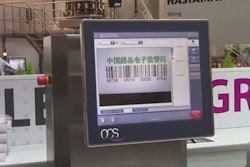
I am tired of hearing that companies with $10 to $12/hour entry-level jobs can't get anyone to apply. No one shows up at job fairs. Yet unemployment is still too high, especially among younger workers! What's the deal here?
A big part of the problem is extended unemployment benefits. An acquaintance of mine just went back to work because his benefits were up. He got a good job (meaning it matched his skill level), comparable to the one he lost, but he hadn't bothered to look for months because he didn't need to. I'm all for a safety net, but what we have created is not a safety net, it is an excuse to not work.The system has blocked the normal bidding process whereby the most qualified fill the best jobs and others fill in below that until the least qualified or inexperienced get the $10/hour jobs.
But, I believe, a bigger part of the problem is that, as a society, we have set an unattainable expectation that if you go to college, you deserve and will get a big salary. Not true! If there were an unlimited supply of jobs that required a college degree, then that might be true. But there is not such a supply. Only 26% of jobs require a college degree. During the expansion since the Viet Nam war, we've essentially doubled the size of the labor pool (depressing wages) and we've built too much capacity for higher education. To fill that capacity, we have lowered standards and made college not something that you earn through performance, but an entitlement.
Now we have a whole generation (maybe a couple generations) of college graduates who want a new house right away with a BMW in the driveway and are frustrated because they can't get the job they think they deserve by virtue of having graduated or attended college. Someone needs to tell them that there aren't enough of those jobs to go around, and there won't be. They are sitting on the sidelines waiting for something that isn't going to happen, while the same government institutions that are responsible for the oversupply continue to pay people not to take jobs.
The automation industry is benefitting, because when employers can't fill entry-level jobs like order pickers, they automate those jobs. Once that happens, those jobs are gone forever—but more high-skilled maintenance jobs are created. Unfortunately, the typical college graduate isn't qualified for these $100,000/year-plus hands-on jobs.
The unemployed whom I respect are those who recognize the situation, take an available job, because it is the right thing to do, and start gaining the experience that will allow them to move up. Others return to community college to gain skills that will land them high-paying gold collar jobs as maintenance technicians, machinists, plumbers, welders, or other in-demand occupations. That's not what they were told their future might be—but they were told wrong. Success goes to those who can adapt!






















